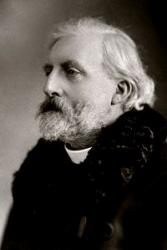Planning worship?
Check out our sister site, ZeteoSearch.org,
for 20+ additional resources related to your search.
- |
User Links
Search Results
The Virgin and Child
Author: C. W. Stubbs Appears in 3 hymnals First Line: On yester night I saw a sight Text Sources: Old English
The Virgin and Child
[On yester-night I saw a sight]
Appears in 1 hymnal Composer and/or Arranger: T. T. Noble Incipit: 12316 71614 14611 Used With Text: On yester-night I saw a sight
[On yester-night I saw a sight]
[On yester night I saw a sight]
Appears in 2 hymnals Incipit: 11231 17132 7665 Used With Text: The Virgin and Child
[On yester night I saw a sight]
The Virgin and Child
Hymnal: Christmas Carols New and Old #25 (1871) First Line: On yester night I saw a sight Lyrics: 1 On yester night I saw a sight,
A star as bright as day;
And all along, I heard a song,
Lullay, by by, lullay, lullay, lullay.
2 A lovely lady sat and sang,
And to her child she spake:
My Son, my Brother, Father dear,
It makes my heart to ache,
To sweet Thee there, so cold and bare,
A King upon this hay;
But hush Thy wail, I will not fail
To sing by by, lullay, lullay,
to sing by by, lullay, lullay;
To sing by by lullay, lullay,
Lullay, lullay, lullay, lullay, lullay.
3 The Child then spake whilst she did sing,
And to the maiden said:
"Right sure I am a mighty King,
Though in a crib My bed:
For angels bright,
Down to Me light;
Thou canst not say Me nay:
Then why so sad ?
Thou mayest be glad
To sing by by, lullay."
4 "Now, sweetest Lord, since Thou art King.
Why liest Thou in a stall ?
Why didst Thou not Thy cradle bring
To some great royal hall ?
Methinks 'tis right,
That king or knight
Should lie in good array;
And them among,
It were no wrong
To sing by by, lullay."
5 "My Mother Mary, thine I be,
Though I be laid in stall,
Both lords and dukes shall worship Me,
And so shall monarchs all:
Ye shall well see
That princes three,
Shall come on the twelfth day:
Then let Me rest
Upon thy breast,
And sing by by, lullay."
6 "Now tell me, sweetest Lord, I pray,
Thou art my love and dear,
How shall I nurse Thee to Thy mind,
And make Thee glad of cheer ?
For all Thy will
I would fulfil,
I need no more to say;
And for all this
I will Thee kiss,
And sing by by, lullay,"
7 "My Mother dear, when time it be,
Then take Me up aloft,
And set Me up upon thy knee,
And handle Me full soft;
And in thy arm,
Thou wilt Me warm,
And keep Me night and day:
And if I weep,
And may not sleep,
Thou sing by by, lullay."
8 "Now, sweetest Lord, since it is so,
That Thou art most of might,
I pray Thee grant a boon to me,
If it be meet and right;
That child or man
That will or can,
Be merry on this day;
To bliss them bring,
And I shall sing,
Lullay, by by, lullay." Tune Title: [On yester night I saw a sight]
The Virgin and Child
The Virgin and Child
Hymnal: Christmas Carols New and Old #25 (1878) First Line: On yester night I saw a sight Languages: English Tune Title: [On yester night I saw a sight]
The Virgin and Child
On yester-night I saw a sight
Author: Rev. C. W. Stubbs Hymnal: Carols Old and Carols New #409 (1916) Topics: Christmas Languages: English Tune Title: [On yester-night I saw a sight]
On yester-night I saw a sight
T. Tertius Noble

1867 - 1953 Person Name: T. T. Noble Composer of "[On yester-night I saw a sight]" in Carols Old and Carols New Thomas Tertius Nobel (1867-1953) was born in Bath, England, educated at the Royal College of Music, and was a noted composer and organist. He served as a church organist in Cambridge and Colchester. He moved to Ely Cathedral in 1892 as organist and choirmaster, and in 1898 to York Minster, where he founded the York Symphony Orchestra, directed the York Musical Society, conducted the York Pageant, and revived the York Musical Festival after a lapse of 75 years. He became an honorary fellow of the Royal College of Organists in 1905. In 1913, he moved to New York City, where he was organist at St. Thomas’ Episcopal Church, and established its choir school and a boys’ choir. In addition to composing, he wrote about music education, and helped edit the 1916 Protestant Episcopal hymnal, and served on the music committee that prepared its 1940 successor. He wrote a wide range of music, but only his services, anthems and hymn tunes are still performed regularly. Died: May 4, 1953, Rockport, Massachusetts.
http://www.hymntime.com/tch/
T. Tertius Noble
Charles William Stubbs

1845 - 1912 Person Name: C. W. Stubbs Author of "The Virgin and Child" Stubbs, Charles William, D.D., was born at Liverpool, Sept. 3, 1845, educated at the Royal Institution School, Liverpool, and Sidney Sussex College, Cambridge; B.A. in honours 1868, M.A. 1876, D.D. 1894. Ordained in 1868, he has held some of the most important positions in the Church, including the Deanery of Ely, and is now (1907) Bishop of Truro. His published works are numerous, but do not come, except in the most remote degree, into the realm of hymnology. In his Brythhoth’s Prayer, and Other Poems, 1899, the hymn "We hail Thee, King of kings! Imperial Christ" appeared (p. 66). In Horder's Worship Song, 1905, it is slightly altered and abbreviated as “We hail Thee, King of kings, Eternal Christ."
--John Julian, Dictionary of Hymnology, New Supplement (1907)
Charles William Stubbs


 My Starred Hymns
My Starred Hymns


